There was a recent change in the curriculum in the US, when the decision was taken to no longer teach cursive script in school. All the arguments about the differences between the physical movements involved in typing or printing in comparison to writing with the delicate loops and swirls of cursive have been made by others.Experts have pointed out that different parts of the brain are involved in the process and questioned the wisdom of heading exclusively to the keyboard. The fine motor skills involved in creating a legible script are not at all the same as those involved in performing the same key-tapping movement for every letter. Nor does the brain engage with creativity in quite the same way. And, while these arguments flare backwards and forwards between one faction and another, technology moves on and keyboards become touchscreens.
Language, both spoken and written, has evolved since its first beginnings, and regardless of our natural desire to maintain the familiar, change is not only inevitable, but we can see it happening day by day as not only the methods and technologies of writing change, but words themselves fall out of use, no longer relevant, while new ones take their place.
Handwriting too has changed, from the first lines and symbols to what we now accept as normal… and that includes cursive script. We have only to look at a manuscript a few centuries old to realise that although the letters appear to be recognisable, they are not the same. Such evolution is normally a slow process, but the technological revolution that brought global communication has meant that change spreads like wildfire, accomplishing in one generation what might have taken centuries not long ago.
That worries me a little. It is bad enough that we tend to type rather than write, correcting as we go so that drafts and corrections are lost to posterity… those little personal notes that throw so much light on the mind of a writer and the evolution of his work. If cursive is no longer being taught, how long will it be before our children are no longer capable of reading it? Do we envisage a time when youngsters may no longer be able to read greetings cards sent by elderly relatives, ponder over the intriguing notes in old books or decipher journals and documents?
Few things can compare to the touch of a handwritten note, the treasures found in old diaries and the carefully preserved letters from generations past. It would be a shame if we were to render them illegible in a few short years.
Thinking about it, I was reminded of an article I wrote a good while ago. I include it here, to show why, to me, words matter… and the written word as much as the spoken.
Originally posted 2013
Words matter to us. Those that are said, those that are not said. The precision of a phrase, the use of one word rather than another can make all the difference to how we feel about something or someone. Often they make even more difference to the way we feel about ourselves. Words can be a source of revelation or cause misunderstanding. They can give deep comfort and beauty and the lack of a word can cause just as great a pain as the wrong ones spoken. A thoughtless phrase thrown out in temper can stay with a child a lifetime, holding it back, just as the right words can inspire confidence. Yet most of the time we take them for granted and barely even notice them on a conscious level.
Yesterday a friend posted a story on Facebook. I have no idea whether or not it is true. I have no reason to doubt it. Some may say that these things don’t happen, but of course they do. It is often the case that we doubt that which falls outside our own range of experience. Just as we simply live and accept a normality others may see as incredible or unusual.
It has been suggested on many occasions that I should write my story. I who have lived it and have simply seen it as ‘life’. Apart from one or two events which were quite obviously outside of majority experience. And who would read it? My son’s story, that is different. Looking at the tales told by others, their adventures across the globe, their achievements, triumphs and encounters, my story, on the whole, seems pretty tame. Yet the suggestion keeps coming up. ‘What an interesting life’. Well, yes, I’d agree with that. But interesting doesn’t always mean happy or comfortable.
Yet when you think about it, the majority of people who write an autobiography after a long and rewarding life would probably say much the same. It is only in retrospect that their lives seem to take on new meaning and a glamour that we, the reader, find interesting. It is who they become, what they achieve in the realms of science or art, or simply in the art of living itself, that renders their story fascinating. It is their human legacy that makes their stories something special.
The tale I mentioned to begin with was what sparked this post. A legacy. Nothing world shaking, except to one woman. The simple story of a man who, after sending his wife a message and flowers for Valentine’s Day throughout their married life, arranged for them to continue to be sent after his death with a few words that mattered just to her. And it really doesn’t matter if this story is true or not. Somewhere it has happened, some man will have loved and thought to do this.
How can I be so sure? Because I have a suitcase upstairs full of words that mattered.
Many years ago when I first met my partner there were notes. Sometimes in the book I was reading, in the drawer with the cutlery, in the coffee canister… or sillier places like tucked in a shoe, or folded into the towel in the bathroom. I never knew where I would find them or when. I have opened my purse in a busy store and had a chain of paper hearts fall out, or a silly poem in my lunch when I got to work… or a letter in the post. Most were tiny little notes. It didn’t matter what they said as each one really said the same thing.
When we set up home together eventually, of course, there was no longer any need for the notes. He had left them there so that when we were apart, after the day or the evening was over, I would have that moment of finding the note and he the moments writing them and we would, for those few seconds, still be together. Sharing a home and a life we no longer needed them.
Yet they continued. Not every day, seldom in the same place twice… but always saying in one way or another the same thing.
He was diagnosed with an advanced cancer six months into our life together. We had no idea how long we would have and the treatment was radical. Amazingly, he did very well. The side effects were a nightmare but we laughed our way through them and the notes continued. In them he was able to write many things he felt he could not say. I still have them all.
He died in 1999, peacefully and quietly. We didn’t quite get to say goodbye, but I closed his eyes. Just the two of us. His little notes and letters became such a comfort in the days that followed, as you can imagine. I cherished the words and the love that had prompted them.
But he hadn’t finished.
I had, of course, to register his death and for that I needed his papers. He had known I would… and folded within them was a letter. I remember sitting on the dining room floor sobbing over it when I found it, trying to keep the tears from my eyes so that I could read while the heart in me ached. Oh so much.
He wrote of the boys and his love and pride in them. He wrote of memories of shared laughter, with an intimacy that brought him very close. He spoke of our life together and his hopes for my future, his faith and pride in me and what he believed I could do. And he said goodbye. He told me he loved me, one last time.
No, I am not writing this dry-eyed, those final words mattered.
I cannot imagine what it took to write that goodbye, the pain he felt or the ache in his heart. I do not know when he wrote it, how long it had waited. Only that when I needed him the most his words brought him to me and wrapped me in love.
He was far from perfect, certainly no saint. We had some right royal arguments. He was a stubborn, cussed bugger and a strict disciplinarian with the boys. I am certainly not idealising the dead. I never got flowers on Valentine’s Day. I was lucky if I got a card. You see, for him every day was a day to show he cared. From my slippers warming on the radiator on a cold day to the note in the bread bin, the coffee waiting when I got home or the song he said was mine, Presley’s ‘The Wonder of You’. Because, he said, the words were perfect. I can’t listen to that dry-eyed either, even after all these years.
Words matter. And they can matter for a lifetime. Sometimes far beyond the span of your own.




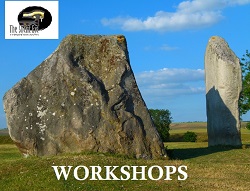



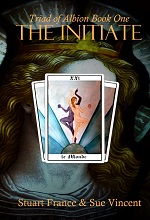


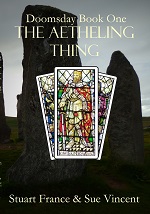
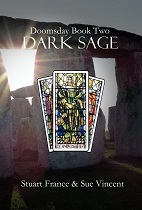
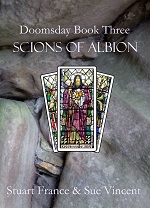







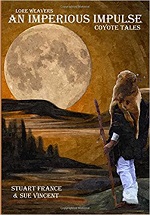


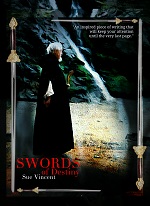

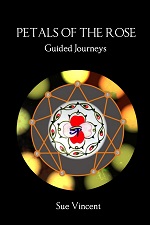






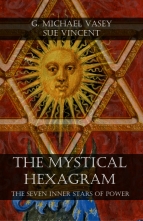

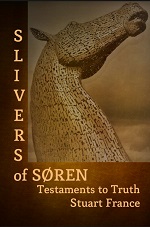


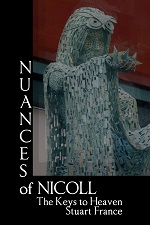


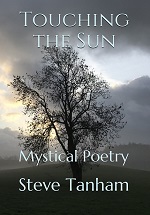

So true. I lament the fact that cursive handwriting is no longer taught in school, although printing is. So many important, historical documents are written in cursive, and for these young people, reading them will be like reading Aramaic. If they can’t understand the original, they will have to trust that the translation they have been given is correct.
LikeLike
And in exactly the same way, it is all too easy for an interpretation to be tweaked to fit a particular philosophy.
LikeLike
I want to believe there will always be readers and writers. I hope somehow, in the future, kids will learn grammar and maybe be inspired to put pen to paper. Even though they’ve long since quit teaching grammar in American schools.
At this point, I’d settle for people knowing the difference between “loose” and “lose” … and, dare I hope … less vs. fewer.
LikeLike
There will always be those who flex their imagination and creativity, regardless of how the world changes.
LikeLike
Our school had cursive as the standard again now, after many years.
It’s true, a handwritten note means much more than a text or email…
LikeLike
I think so and I’d hate to see cursive disappear altogether.
LikeLiked by 1 person
Me too. It was a struggle to remember to write cursively on the boards initially, as we had been instructed to use print everywhere, but now I’m back into it, I love it! My children love the loopy nature of the script…. I think many children do.
LikeLike
I remember feeling all grown up with ‘joined up’ writing.
LikeLiked by 1 person
It was, and is, a great feeling… it looks so good!
LikeLike
Until teacher writes your report !)
LikeLiked by 1 person
Lol! True!!
LikeLiked by 1 person
🙂
LikeLiked by 1 person
I love to look at handwritten work. There is something about it that draws me in. I can appreciate the hard work that went into the writing, not just the content but the style of handwriting too.
I was taught copperplate handwriting in primary school, but was sadly never much good at it! One of my mum’s oldest friends always sends her and us cards and letters at Christmas, and it is a joy to look at his beautiful handwriting flowing across the page, with its curves and loops.
I would hate to think of this art dying out, and future generations missing out.
LikeLike
I love old documents too…and my mother, grandmother and great grandparents had beautiful handwriting I always tried to emulate…I’d hate to lose it too.
LikeLiked by 1 person
Well said, Sue. They’d have us communicating in zeroes and ones if they could.
LikeLike
Or not at all…
LikeLiked by 1 person
Good point
LikeLiked by 1 person
Beautiful Sue, my wife and I leave each other little notes from time to time too.
LikeLike
I don’t think you can overdo that 🙂
LikeLiked by 1 person
Sue, this is so beautiful and heart-wrenching at the same time. I can’t imagine there are many dry eyes when reading this. KL ❤
LikeLike
Just stay with beautiful… It is a memory now that only makes me smile.
LikeLiked by 1 person
Yes. Yes Sue, Yes. Words do matter. Your’s, right here, matter greatly.
(PS…..cursive should not be done with!)
LikeLike
Thanks Colleen. No I’d hate to see it disappear.
LikeLiked by 1 person
A beautiful post Sue, and I didn’t read it dry eyed either. Those are precious memories you have and in a way I envy you, but that is more to do with my life than yours.
We have to guard our ability to continue to write the words that matter, and whoever decided to try and change that must be out of his mind.
LikeLike
Thank you. Just happy memories these days and glad for that.
I agree, but I doubt if the writer’s mind will ever be silenced.
LikeLiked by 1 person
cannot happen, thank God…
LikeLike
Indeed.
LikeLiked by 1 person
Not dry-eyed reading this – what a beautiful story. And, yes, words matter so very much.
LikeLike
These days I just smile.. and feel lucky to have such memories.
LikeLike
Such a beautiful piece that shows how very much words do matter. You were very lucky to have each other, for no matter what length of time, Sue. Thanks for sharing something so very personal.💖
And a note on handwriting…it has already happened. I had to print my greeting cards to nieces and nephews in the past 10 years, they could not read cursive. It is such a shame. I labored over penmanship with 8 years of Catholic school nuns, but when I want to write something meaningful and personal, I pick up the pen and go to a paper journal. It matters. ☺
LikeLike
Thank you. Yes, I was very lucky.
It appalls me to think that something so simple and beautiful is being lost. I don’t see why we cannot keep cursive as well as printing.
LikeLiked by 1 person
And how will one’s signature evolve ? Will we all sign with an X ? ☺
LikeLike
Makes you wonder, doesn’t it? 🙂
LikeLiked by 1 person
I believe that learning to write with pencil or pen and paper is fundamental to developing our creative skills. Forming the letters that make the words is part of the learning process and it will be a great shame to see this ‘evolve’ out of the curriculum.
LikeLike
I agree. he motor skills, coordination and even the relationship with paper and pencil will suffer if we lose handwriting.
LikeLiked by 1 person
Other people are probably better qualified than I am to talk about the possible effects of cursive no longer being taught in schools. All I will say is that it is a pity to think of future generations not being able to read the handwritten letters of their ancestors. 😦
LikeLike
Yes, I think that was what really brought it home for me too.
LikeLiked by 1 person
Your second half leaves me teary-eyed, but the first part hits home: “Do we envisage a time when youngsters may no longer be able to read greetings cards…” That future is now! My own sons tell us not to write to them in cursive because it is ‘too hard to read.’ This makes me so sad! Years of journals where I’ve poured my heart out, thinking someday they may feel connected to me after I’m gone are pouf! no longer legible, scribbles of gibberish on a page. They will need ‘handwriting specialists’ to decipher our and previous generations writings. I feel this loss bitterly. Ships untethered and set adrift on a sea. Whether this is right or not is beyond the point… it is the way it is and I see no stopping it. The world is sweeping along with or without us and we have little choice but to adjust.
LikeLike
Now that’s the thing that brings tears to my eyes… the loss of personal access to our history, both global and familial.
LikeLike
It’s like standing on the edge of a great canyon, watching a massive landslide and knowing you are powerless to stop it.
LikeLike
Yes… that’s a good way to put it…
LikeLiked by 1 person
It’ll be the same as for the people who wrote in hieroglyphs or cuniform in stone or clay tablets, thinking that people would be able to read what they said long in the future. But you need to know the language as well as the ink scratchings. In a couple of millennium, that won’t be the case. Should we leave a ‘Noah’s Ark’ of literature, like the Dead Sea Scrolls for future generations to find? Will it be in stone, paper, computer chip, polymer or quartz? It’s not just about how we write things down, but how we save it in an understandable form for future generations. Who is the future Shakespeare? Would you want future people to find ‘Katie Price – My Biography’ or ‘Anne Frank’s Diary’? ’50 ways to cook Sushi’ or ‘Honey and it’s healing properties’? Will it end up like Topekli Tepe and be buried, to be rediscovered in a couple of thousand years with no ‘Rosetta Stone’ to assist the translation? That is the real question.
LikeLiked by 1 person
Good thoughts, good questions!
LikeLiked by 2 people
Thank you very much, appreciate it
LikeLiked by 1 person
Records were left for us, but, as you say, the language and its means of expression have changed and evolved over the centuries. What saddens me is that what should be a gradual process over many years risks being deliberately imposed within a single generation. At a point in history where literacy is at a global high and for the first time all levels of society have access to the knowledge of the ages… we make it inaccessible.
LikeLiked by 1 person
Excellent post. Words do matter…we should use them wisely, unless, of course, we’re running for U.S. President 🙂
LikeLike
Oh dear… Sadly that applies to most politicians the world over …
LikeLiked by 1 person
Words are imprints. And this post is on point. What will the world be without new generations learning to write in cursive, the human touch. Will there be any personal touch left? A simple love letter, a thoughtful letter, any personal letter would not feel personal anymore. This would be an affliction on the spirit of the soul. Who makes up these stupid rules anyway?
Fab post as always Sue! 🙂
LikeLike
There is magic in the act of taking up a pen and creating beauty in words… a little bit of the soul of the writer is placed on the page. The keyboard is not the same.
LikeLiked by 1 person
One thousand percent agreed! 🙂
LikeLiked by 1 person
Reblogged this on THE PEN AND THE PAGE and commented:
A brilliant and touching piece by my friend, Sue Vincent.
LikeLike
I have not the words to do this justice, Sue.
LikeLike
Thanks Darren.
LikeLiked by 1 person
Sue, this is truly a heartwarming post. Notes, kind words written for someone to find, are truly a beautiful gift. Your story brought tears to my eyes (make that a deluge).
Don’t get me started on the decision here in the US to abandon teaching cursive. I am totally disgusted with the “educators” who support this.
Have a wonderful weekend, my friend. Hugs.
LikeLike
Sorry about that, Michelle…
I can think of so many reasons why this is such a shortsighted and terrible idea…
LikeLiked by 1 person
Pingback: Mention in Dispatches – Texting, Libraries, 3D Parties and Canadian Customs. | Smorgasbord – Variety is the spice of life
A lovely heart stiring piece that brought tears to my eyes. Well done, my friend.
LikeLike
Thank you, Jamie.
LikeLiked by 1 person
Oh, Sue, that is so beautiful. When I first met my husband we had an extended time apart and I still have the letters he sent me, so precious.
And what happens if technology fades and we no longer know how to write any other way? Not teaching cursive script is madness, I think.
LikeLike
Those paper memories really are precious. I would hate them to be unreadable in a few years…
LikeLiked by 1 person
Exactly. It seems a false economy to stop teaching such a skill.
LikeLike
I agree, and the benefits in development for a growing child must outweigh the learning process.
LikeLiked by 1 person
There’s also a certain amount of pride, that they have mastered their letters well enough to move onto cursive – I remember my daughter’s excitement when she started to learn it. You do wonder whether those making the decisions remember being children at all.
LikeLike
‘Joined up’ writing was a major achievement! I always wanted to write like my mother, whose hand was beautiful.
I agree…their childhood seems a forgotten episode. maybe that’s the problem.
LikeLiked by 1 person
I really do think it is.
LikeLike
So do I.
LikeLiked by 1 person
That is so romantic, and touching! You were blessed… and I agree, our children should definitely be able to read and write cursive.
A funny video by a slightly notorious person tells the story of a case being dismissed because some of the evidence – a hand-written note – could not be deciphered by the judges!
LikeLike
I wonder how long it would take before an expert witness had to be called in to read such notes. At present there may be humour in it…not for long though, I fear.
LikeLiked by 1 person
It would be funny if it weren’t so sad.
LikeLike
Yep.
LikeLiked by 1 person
Perhaps handwriting will become an art. It’s sad though…
LikeLike
I hope not…that would be sad…
LikeLike